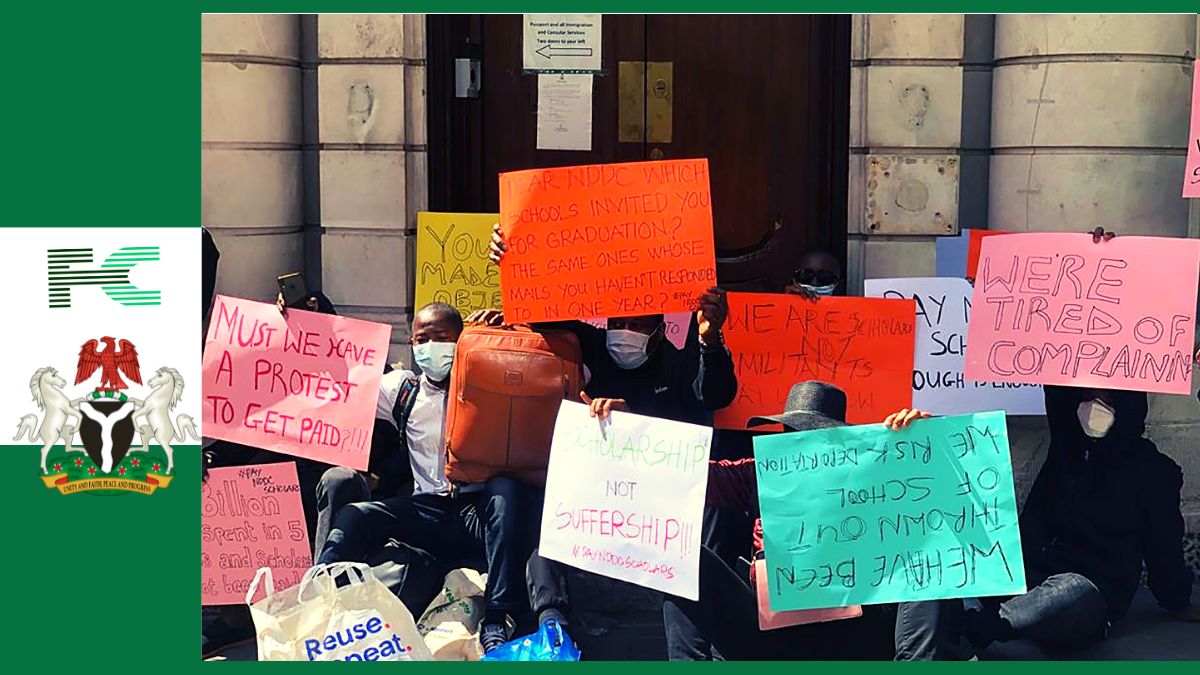The Nigerian government has at long last, announced that the application portal for the much-anticipated student loan will open on Friday, May 24.
The spokesman of the Nigerian Education Loan Fund, NELFUND, Nasir Ayitogo, had made this announcement in a statement that was released on Thursday.
The loan scheme will reportedly, permit students to access loans to pursue their academic aspirations with no financial constraints.
This development is coming eight months after President Tinubu declared that the program would not commence in September 2023, as originally planned.

What They’re Saying
Nasir Ayitogo’s statement partly reads:
“The management of the Nigerian Education Loan Fund, NELFUND, led by its Managing Director, Mr Akintunde Sawyerr, is thrilled to announce 24 May 2024, as the official date for the opening of the portal for student loan applications.”“This marks a significant milestone in President Bola Ahmed Tinubu’s (GCFR) commitment to fostering accessible and inclusive education for all Nigerian students. Through the portal, students can now access loans to pursue their academic aspirations without financial constraints. The portal provides a user-friendly interface for students to submit their loan applications conveniently.”
Why It Matters
The Nigerian government’s announcement regarding the opening of the student loan portal, though long-awaited, raises several critical points of concern and scrutiny.
Firstly, the significant delay in launching the portal, initially slated for September 2023, casts a shadow over the administration’s commitment to timely and effective implementation of educational reforms. The eight-month postponement suggests a possible lack of preparedness or prioritization, which is worrying given the urgency of addressing financial barriers in education.
Secondly, while the initiative to provide student loans is commendable, the effectiveness of such a program depends on the seamless functionality of the portal and the transparency of the application process. Past experiences with government-run portals in Nigeria have too often, been marred by technical glitches and bureaucratic hurdles. It remains to be seen whether this portal will indeed be “user-friendly” and whether the application process will be free of the inefficiencies and corruption that have plagued similar initiatives.
Thirdly, there are wide concerns about the long-term sustainability and management of the loan fund. The statement from Nasir Ayitogo stresses the immediate accessibility of loans, but it lacks detail on the how the repayment structure, interest rates, and safeguards against default will work. With no clear and fair repayment plan revealed so far, there is a risk that this well-intentioned initiative could lead to financial instability for both the students and the loan fund itself.
Lastly, while the opening of the loan portal is a positive step, it must be accompanied by ongoing transparency and responsiveness to the needs of students. The government’s responsibility is not only to implement the program efficiently but also continuously monitor and improve it based on feedback and performance.
Bottom Line
The true test of this initiative will be its ability to deliver on its promises and genuinely support the academic aspirations of Nigerian students without introducing new challenges or uncertainties.

















